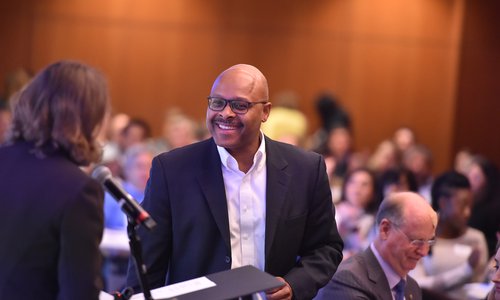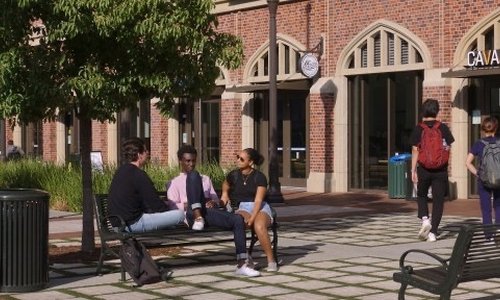Stories

Where Do Workers Living on Low Incomes Stand in the Post-Pandemic Economy?
An article in Politico looks at the gains and losses—actual and potential—for lower-wage workers in the current economic climate. Katrin Kark, LISC’s director of workforce innovations, who is quoted in the piece, cautions that increased wages don’t suffice to stabilize finances or create economic mobility across the board. “Higher entry wages alone aren’t enough to close…opportunity gaps,” she says.

CNN Spotlights LISC's Record Efforts to Close Racial Wealth & Opportunity Gaps
Since the outbreak of the pandemic and this year's anti-racist protests, LISC has raised some $2 billion in grants, loans and equity to fund programs that aim to upend structural racism and close yawning health, wealth and opportunity gaps. An article in CNN looks at how corporate donors have stepped up to support LISC in this work and points to what will be an ongoing need. As LISC CEO Maurice A. Jones says in the piece, “This requires faithfulness over a long time to have real transformative impact. It can't just be 2020. This has to be a new chapter.”

LISC + Brookings: How to Spark Economic Opportunity, with L.A. as a Test Case
LISC’s SVP of economic development Bill Taft, LISC LA executive director Tunua, Thrash-Ntuk and Hanna Love of Brookings' Metropolitan Policy Program offer a concrete outline for how local organizations, stakeholders and policy makers can help spark economic vibrancy and inclusion in historically under-invested communities. Invoking the myriad causes of LA’s homelessness crisis, the blog for Brookings offers a multi-pronged place-based and people-centered approach that is forging authentic change in South LA, and in parts of Philadelphia and Indianapolis, too.

LISC in Nonprofit Quarterly: 40 Years of Innovation and Impact
In a wide-ranging conversation with Nonprofit Quarterly, LISC COO Annie Donovan delves into LISC’s 40 years of connecting capital to disinvested places, and people to opportunity. From spearheading a “comprehensive” approach in community development, to elevating health and racial equity in its investments, to forging a $500M affordable housing fund for the Bay Area, LISC continually refines and augments its work. The commitment to truly upend inequalities demands intentional action, says Donovan, which has led LISC to take on “more capacity building, more support for advocacy. That is how you create systems change.”

Celebrating the Man Who Launched LISC Jacksonville
Twenty years ago, J.F. Bryan IV, a Florida insurance executive with a deep-rooted commitment to his city’s communities, spearheaded a fundraising campaign that got LISC Jacksonville off the ground. The story of Bryan’s tenure as head of LISC Jax’s local advisory board shows what it takes to drive a successful LISC program—boundless dedication to creating opportunity, and an intimate knowledge of local places and the people who make them hum. Says Bryan, “Every neighborhood, regardless of how challenged, has human resources.”

The “Ripple Effect” of Investing in Rural America
We need to look at the impact of investing in rural community development on its own terms, argues Suzanne Anarde, outgoing vice president and director of Rural LISC in an essay for Shelterforce. Projects may not touch the numbers of people or generate the returns of urban investments, but their effects are every bit as important, and ripple far and wide through the small, intricately connected networks of rural life.